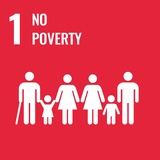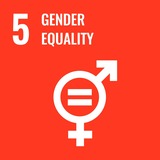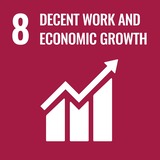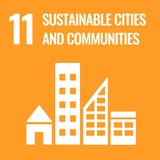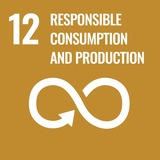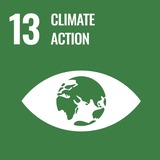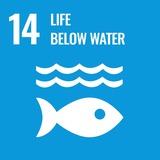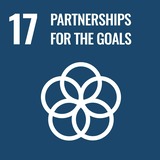INDIA
Clean Chemnad
Just a few kilometers from the coast, Chemnad is home to friendly faces, dramatic landscapes, and calming coastlines.
It was also home to a piling plastic pollution problem due to an inefficient waste management system — until we implemented our project, that is.



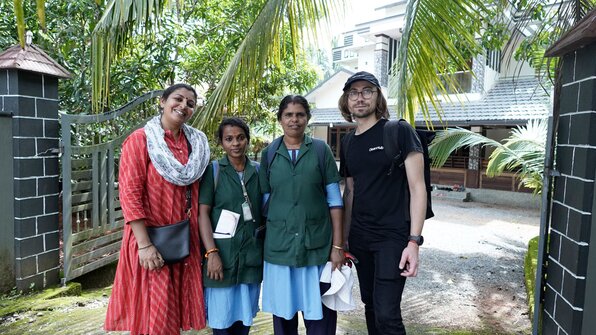
INDIA
Clean Chemnad
Just a few kilometers from the coast, Chemnad is home to friendly faces, dramatic landscapes, and calming coastlines.
It was also home to a piling plastic pollution problem due to an inefficient waste management system — until we implemented our project, that is.



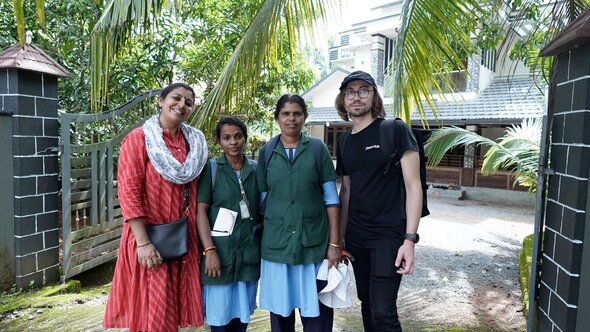
The story
Located in the heart of Kerala's Chandragiri River sits the small town of Chemnad. Just a few kilometers from the coast, this quaint town is home to friendly faces, dramatic landscapes, and calming coastlines. It was also home to a piling plastic pollution problem due to an inefficient waste management system — until we implemented our project, that is.
A few years ago, locals only had one proper way of dealing with trash: waste collection from a small self-help group of 38 women. Despite their best efforts, they had to track everything manually with pen and paper, and only 20-30% of local people engaged with their service.
Fast forward to today, and CleanHub is keeping Chemnad clean by providing proper waste management to over 13,500 houses and 700 shops, helping over 80% of locals with their trash.
The plan
As well as helping the environment, our key goal is to support communities with our projects.
So before we kicked off our cleanup efforts, we laid out a seven-point plan to make sure locals would benefit from the new waste management system:
1
Meet the community
This allowed locals to voice their opinions on the project plan. We also got to explain the process firsthand and offer opportunities to people who wanted to get involved.
2
Set out a blueprint plan
We needed to make sure the project would run smoothly and actively involve the locals. After talking with families in the area, we hired 40 local women to get started.
3
Carry out a baseline survey
To prevent plastic pollution in the long run, we surveyed local families to assess their attitudes toward waste, existing management practices, and knowledge of plastic pollution.
4
Run a collection trial
This helped us estimate the number of families we’d need to collect waste from and gave us a better idea of the amount of trash we could expect.
5
Raise awareness of the program
This helped locals learn more about the issue of plastic waste and made sure we avoided any segregation in the area.
6
Integrate our app into the collection process
The benefits of doing this are two-fold: it makes our collection data more transparent and thorough, and it’s much easier for the collection team to log data.
7
Roll out the program
Once we’d completed all these steps, we were set to carry out regular collections and start reducing plastic waste in Chemnad.
To make this plan effective, we needed to hire a dedicated collection team — the backbone of our operations.
We started by recruiting over 40 local women from the area. Our Head of Impact, Lakshmi Menon, then set the plan in motion by holding training workshops to teach the team waste management basics, the reason behind our mission, how to use our waste collection app, and much more.
These training sessions also acted as a safe space for the team to familiarize themselves with smartphones — some for the first time — and our app, to digitize the whole process.
Support a Cleaner Planet
Your brand can have direct impact and help to expand into more coastal communities.
Our impact

Clean Communities
Education is key in all of our projects, and is something we believe leads to long-term change.
Our pre-project survey found that over a third of locals (38.6%) said they weren’t familiar with recycling. But now, with over 80% of the community involved in our waste management system, the people of Chemnad can live in a clean community, without litter lining the streets.

Clean Jobs
To us, it’s vital that the collection team is safe and healthy during operations. That’s why we gave all 40 women with shoes, jackets, and gloves to do their work safely — and provide healthcare as part of our job package.
We’ve even integrated AI into our app to help spot health-and-safety compliance violations, meaning we can see if people aren’t wearing the right safety items. The number of people wearing shoes, rather than sandals, increased dramatically once we implemented this feature.

Clean Oceans
The people of Chemnad can now manage their waste in a healthy way — for both them and the oceans — reducing plastic pollution that would have previously ended up in the Indian Ocean.
Our collection process
When it comes to plastic collection, transparency is key.
We want the brands that fund this project to know exactly how much plastic they’ve helped to recover, and where it’s been collected from. That’s why we implemented this standardized collection process for this project:
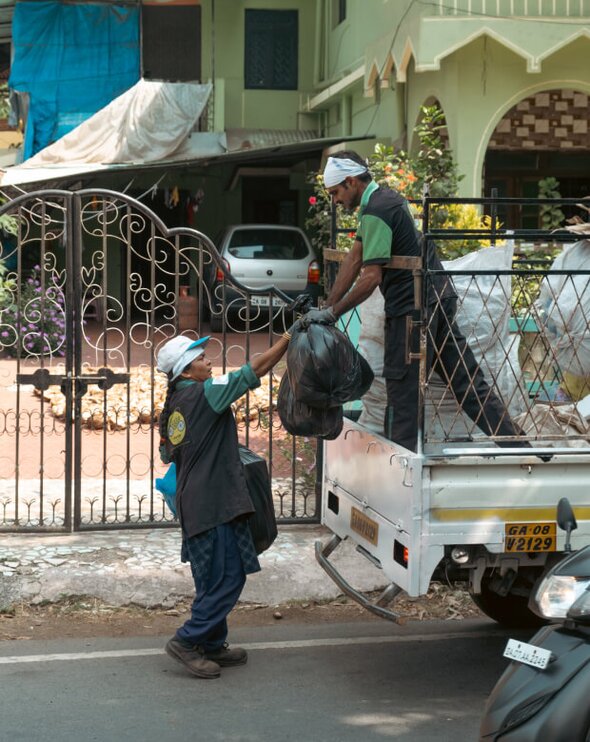
STEP 1
Collect waste from families
Instead of focusing our efforts on waste in the open environment, we stop plastic pollution at the source by collecting waste from homes in Chemnad.
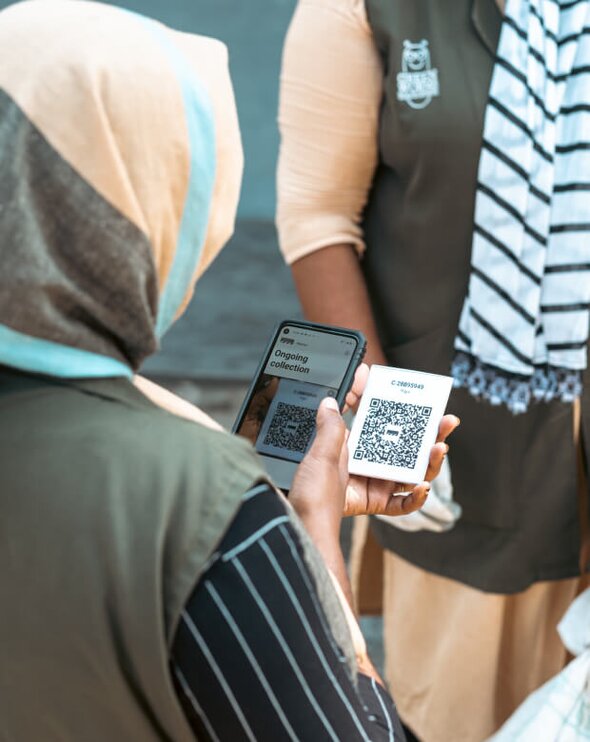
STEP 2
Register the amount of waste
This is done easily through the CleanHub app. All the team needs to do is verify the collected volumes by taking a photo and logging the weight of the bag.
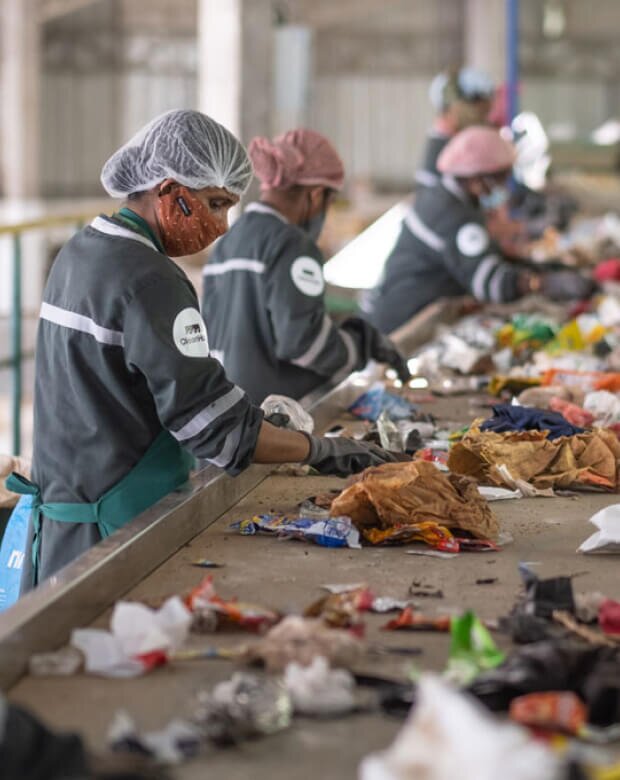
STEP 3
Sort the waste
The collection team then sorts the bags of trash, inputs the data into our app, and marks the bags of waste as ‘ready to be delivered’
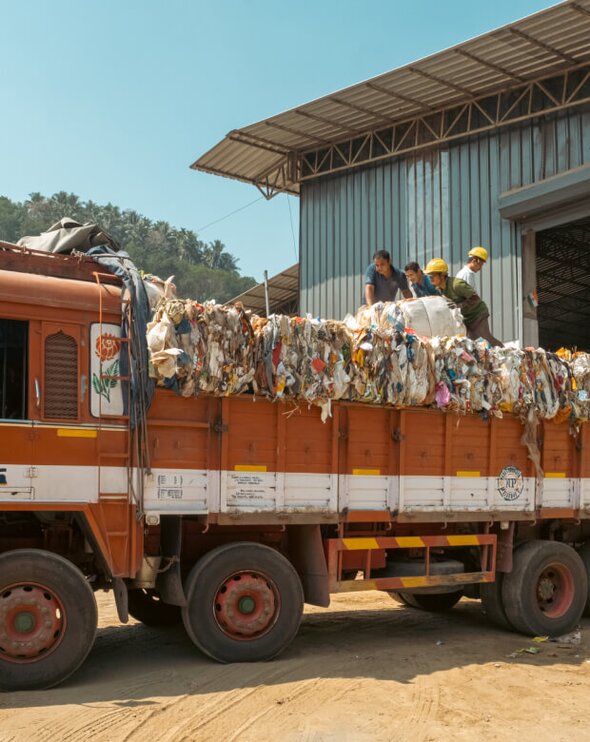
STEP 4
Transport the waste
Once the collection is done, all waste is taken to the Green Worms’ Material Recovery Facility to be processed.
Collection operator: Green Worms
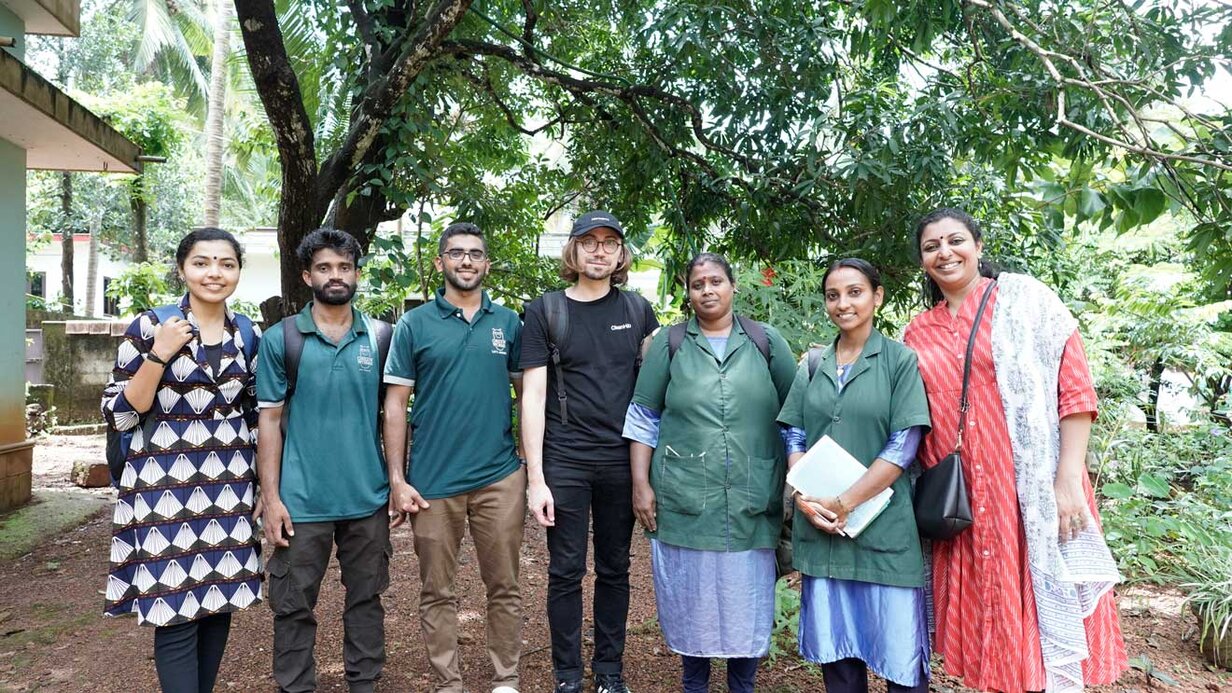
This project wouldn’t be possible without our incredible collection partner, Green Worms.
Green Worms is a waste management hub that collects household waste in more than 50 municipalities across South India. They've been a CleanHub Partner since 2020.
Greenworms ethos matches CleanHub’s goal of introducing a more circular economy, bringing systemic change in waste management that involves converting plastic into new materials.
We pride ourselves in working with a company that is transparent about its processes and — most importantly — provides safe and dignified jobs for over 300 women.
Together we’ve collected over 1.5 million kilograms (kg) of plastic waste — and counting. On top of this, the company educates local communities on how to segregate their waste better.
Support a Cleaner Planet
Your brand can have direct impact and help to expand into more coastal communities.
Sign up to our newsletter
Subscribe to receive monthly insights. Plus, we’ll collect 1kg of plastic on your behalf.
Our accreditation
We're the first plastic credit system verified by TÜV SÜD

Cookie Policy
Cookies help us deliver our services and to improve the product. You can find more information on our Cookie Policy.


